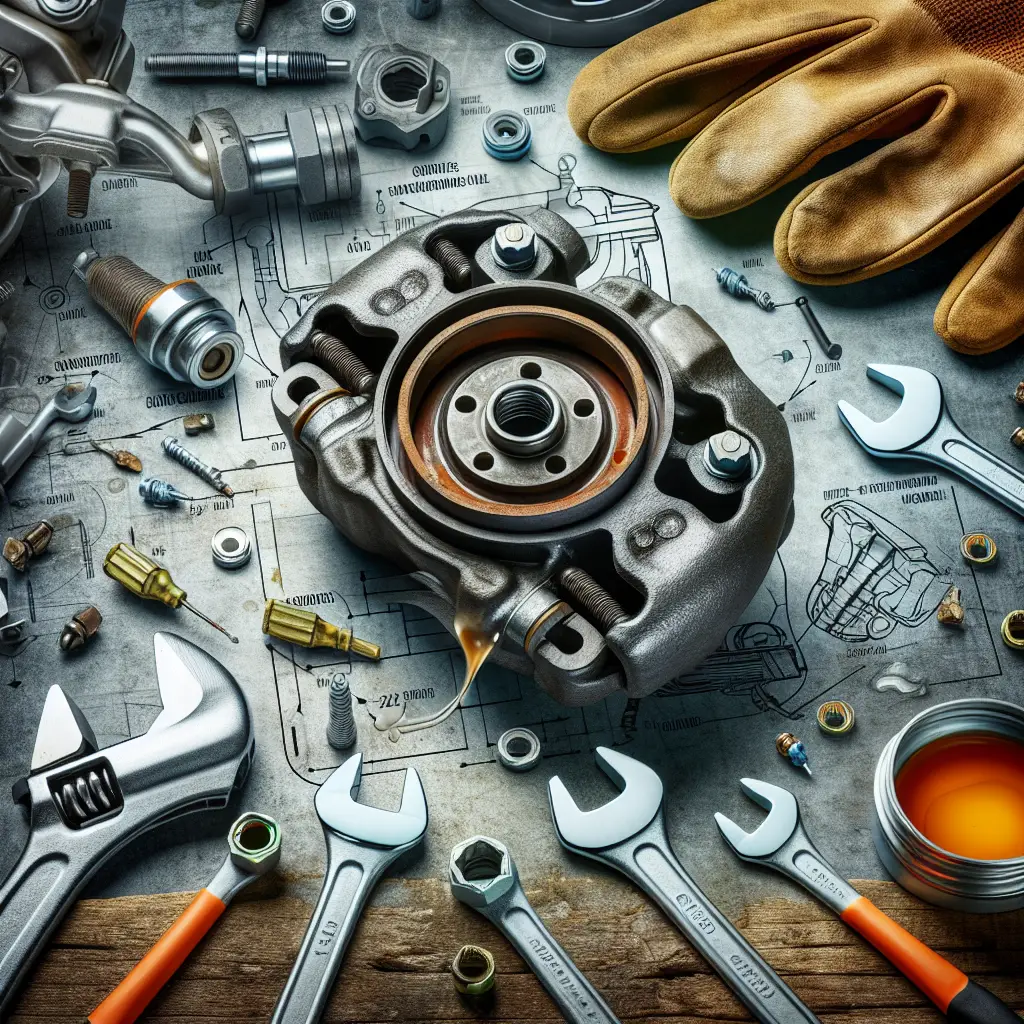Why Do Brake Calipers Leak? Understanding the Culprits Behind Your Braking Woes
When you press the brake pedal, you expect your car to slow down and stop smoothly, without any fuss or drama. So when something goes wrong, particularly with critical components like brake calipers, it’s not just a nuisance—it poses a real threat to your safety. But why exactly do brake calipers leak, and what should you do when it happens? In this article, we will dive deep into the causes, implications, and solutions for leaky brake calipers.
In-depth Look: The Inner Workings of Brake Calipers
Brake calipers are essential components of your vehicle’s braking system. They house the brake pads and pistons. When you apply the brakes, hydraulic pressure from the brake fluid pushes the pistons, which in turn squeeze the brake pads against the rotating brake disc or rotor, thereby slowing down your car.
Now that you understand their importance, let’s explore the reasons behind their potential leaks.
Common Causes of Brake Caliper Leaks
Worn-Out Seals and Gaskets
The most frequent cause of brake caliper leaks is wear and tear on the seals and gaskets. Over time, the rubber seals that keep the brake fluid contained within the calipers can degrade due to the heat generated by braking and exposure to road debris. A compromised seal allows brake fluid to escape.
Corrosion
Corrosion can also be a major factor. Road salt and moisture can lead to rust and corrosion on the metal parts of the calipers. As the components deteriorate, they can lose their ability to seal properly, leading to fluid leaks (National Highway Traffic Safety Administration).
Damaged Pistons
Another potential cause for leakage is damaged pistons. Pistons can suffer from scoring or pitting, often directly related to rust or debris. Such damage can break the seal between the piston and the caliper, allowing brake fluid to leak out.
Improper Installation
Sometimes, the issue could simply be due to improper installation or maintenance procedures. If a brake caliper was not properly fitted during servicing—perhaps the bolts were not tightened to the correct specifications, or the seals were not fitted accurately—leakage could occur.
Brake Fluid Contamination
Lastly, contamination of brake fluid is a less common but possible cause. If the fluid becomes contaminated with debris or water, it can lead to internal corrosion of the brake calipers, resulting in leaks over time.
Signs of a Leaked Brake Caliper
Spotting a brake caliper leak early can prevent a complete brake failure. Here are some signs:
- Visible leaking fluid on the inside of the wheel.
- Reduced responsiveness or a spongy feeling when pressing the brake pedal.
- Unusual noises when braking, such as squealing or grinding.
- Pulling to one side when applying brakes, which might suggest one caliper is leaking and not applying pressure evenly.
Spotting these issues? It’s crucial to address them immediately. Check with reputable sources like AAA’s car maintenance tips to understand how often you should inspect your brakes.
What To Do if Your Brake Caliper is Leaking
Should you find yourself facing a leaky brake caliper, it’s important to act swiftly. Driving with a compromised brake system is dangerous. Here’s what you should do:
Consult a Professional
While some car enthusiasts might be equipped to handle brake repairs, it’s generally advised to seek professional help from a certified mechanic. They have the necessary tools, expertise, and understanding of the brake system to carry out the repairs correctly, ensuring your safety (Car Care Council).
Brake Caliper Rebuild or Replacement
Depending on the severity and the diagnosis, a mechanic might suggest a brake caliper rebuild or replacement. Rebuilding involves replacing the seals and damaged parts within the caliper, while replacement means installing a completely new caliper.
Do Not Delay
Ignoring a brake caliper leak can lead to complete brake failure. Recognizing the seriousness of the problem and getting it repaired at the earliest is non-negotiable.
Preventive Measures for Brake Caliper Leaks
Taking proactive steps to maintain your braking system can help prevent leaks. Here’s what you can do:
- Regular Inspections: Have your brakes checked regularly by a professional to catch any imminent issues before they escalate.
- Keep It Clean: Regularly clean your vehicle’s brakes to prevent dust and debris build-up.
- Fluid Changes: Replace your brake fluid at recommended intervals to avoid contamination.
Final Thoughts
Brake caliper leaks are a serious issue but are typically preventable with regular maintenance and immediate attention to any signs of trouble. Remember that your brakes are your car’s most important safety feature. As such, any potential problem, such as a leak in the brake calipers, should be addressed promptly to ensure your safety on the road.
Stay vigilant, maintain your vehicle regularly, and never compromise on your car’s braking performance. After all, when it comes to driving, safety is not just a priority—it’s the only way to navigate the roads with peace of mind. Keep our tips in mind, and drive safe!

